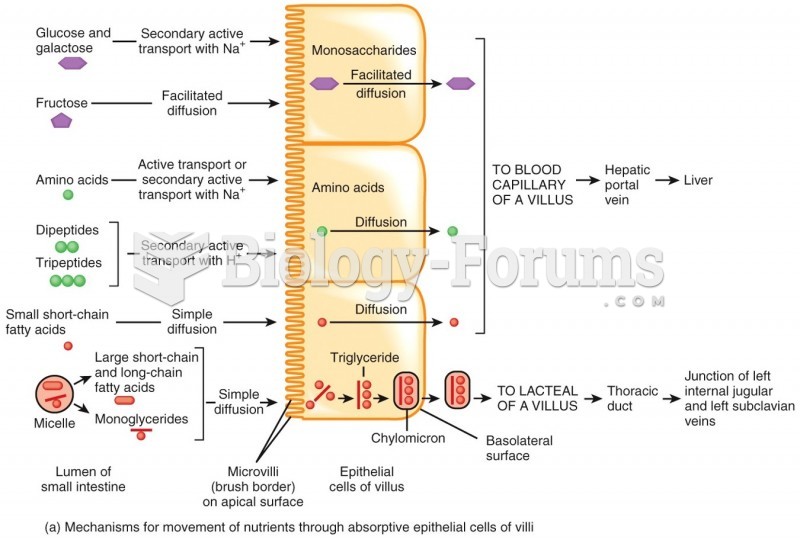This topic contains a solution. Click here to go to the answer
|
|
|
Did you know?
Cyanide works by making the human body unable to use oxygen.
Did you know?
Today, nearly 8 out of 10 pregnant women living with HIV (about 1.1 million), receive antiretrovirals.
Did you know?
All adults should have their cholesterol levels checked once every 5 years. During 2009–2010, 69.4% of Americans age 20 and older reported having their cholesterol checked within the last five years.
Did you know?
Medication errors are more common among seriously ill patients than with those with minor conditions.
Did you know?
More than 4.4billion prescriptions were dispensed within the United States in 2016.
 Tubal ligation. To minimize the size of the incisions necessary, laparoscopic surgery may be used to
Tubal ligation. To minimize the size of the incisions necessary, laparoscopic surgery may be used to
 Early cities were small economic centers surrounded by walls to keep out enemies. These cities had ...
Early cities were small economic centers surrounded by walls to keep out enemies. These cities had ...





